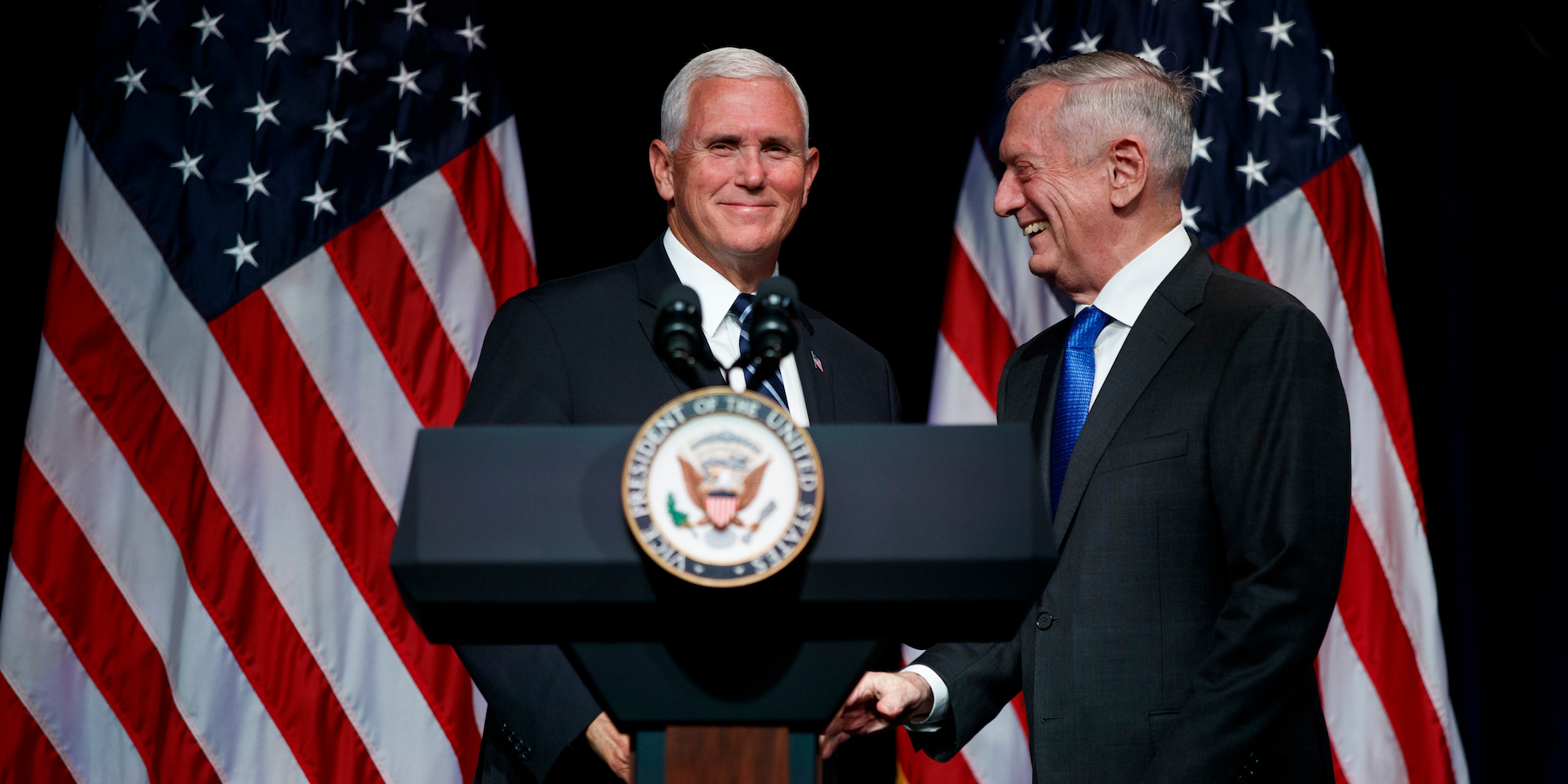- Vice President Mike Pence on Thursday outlined the Trump administration’s plan for establishing a “Space Force,” an entirely new military branch that would defend US assets in space.
- There’s a great deal of skepticism surrounding President Donald Trump’s desire for a Space Force, with many in Washington questioning whether it’s necessary and would be worth the cost and additional bureaucracy.
- The biggest obstacle to the creation of a Space Force is Congress, as the establishment of a new branch of the US military requires congressional approval.
Vice President Mike Pence on Thursday outlined the Trump administration’s plan for establishing a “Space Force,” an entirely new military branch that would defend US assets in space.
“The time has come to establish the United States Space Force,” Pence said at the Pentagon.
“Our administration will soon take action to implement these recommendations with the objective of establishing the United States Department of the Space Force by the year 2020,” Pence added.
Pence’s speech was the latest attempt to offer a clear outline for a proposal that has faced legislative pushback from both parties and comes as the administration is mired in other controversies.
The vice president said the Space Force would have four main components, including a Space Development Agency "to develop and field space capabilities at speed and scale," and a Space Operations Force, made up of officials who would provide expertise during crisis and conflict.
Pence said the Pentagon would also "create the governance, services, and support functions of the Space Force," which would involve creating a legislative proposal for Congress.
Finally, the Pentagon would also establish a US Space Command to be led by a four-star general or flag officer, he said.
Our administration will soon take action to implement these recommendations, with the objective of establishing the United States Department of the #SpaceForce by 2020. pic.twitter.com/qQaJDAfTl7
— Vice President Mike Pence Archived (@VP45) August 9, 2018
President Donald Trump in June announced he was instructing the Pentagon to take steps to establish "a Space Force as the sixth branch of the armed forces," an effort that didn't appear to sway Congress or the Pentagon.
The last time a new branch of the military was established was in 1947, when the Army Air Corps was disbanded and the US Air Force was established.
There's a great deal of skepticism surrounding Trump's desire for a Space Force, with many defense experts and policymakers questioning whether it's necessary and would be worth the cost. Some objections to the creation of a Space Force arise from concerns that it would strip resources from existing military branches already pursuing these missions, especially the Air Force.
The biggest obstacle to the creation of a Space Force is Congress, as the establishment of a new branch of the US military requires congressional approval.
That said, Congress doesn't appear to share Trump's and Pence's enthusiasm for a Space Force. In November, for example, lawmakers shot down a proposal to establish such a force.
Defense Secretary Jim Mattis has also seemed apprehensive about the idea. In a memo he sent to Republican Sen. John McCain last year, he said he opposed "the creation of a new military service and additional organizational layers at a time when we are focused on reducing overhead and integrating joint warfighting functions."
More recently, Mattis expressed support for establishing a new combatant command for space. And Pence on Thursday said part of the plan for the Space Force involved setting up a US Space Command. That would be somewhat bizarre for US military structure, with some noting it would be akin to having a US Army Command, which functions as a command of operational forces, and a US Army.
The former NASA astronaut Mark Kelly said on Thursday of a Space Force: "The only person that I've heard say this is a fantastic idea is the commander in chief, the president of the United States. Everybody else says it's redundant, it's wasteful. We don't have the need out there right now."

